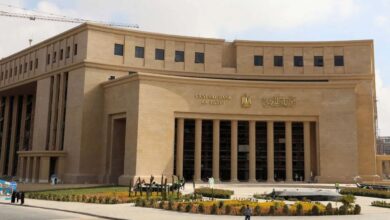The US dollar has reached a new level, being sold at LE16 at Egyptian banks on Sunday, as banks began trading freely for the first time since authorities ditched the currency's peg in a policy shift designed to crush a black market and clinch an International Monetary Fund loan.
Interbank trading began at 10:30 am (08.30 GMT) but activity was extremely slow because banks were uncertain about the prospects for supply and demand of US dollars.
Beltone Financial said on Sunday that the rising price of the US dollar is currently due to the limited supply of the foreign currency.
However, it said instability in supply and demand would not vanish overnight, but projected a very positive period after Egypt receives US$5 billion in currency swap with China (US$2.7 billion) and some US$2.5 billion from the IMF, due after approval of the deal on the US$12 billion loan for Egypt.
On Sunday afternoon, Banque Misr was selling the US dollar at LE16, the same as the Housing and Development Bank, both government-run banks.
Central Bank of Egypt floated the pound on Thursday, initially devaluing it by about a third from the peg of 8.8, with the bank letting it drift down to around 15.35 to 15.75 by the end of the day.
The float is widely seen as dealing a strong blow to the black market dollar trading that was booming under the peg conditions, and ending the policies of strict rationing of dollar supplies at banks.




